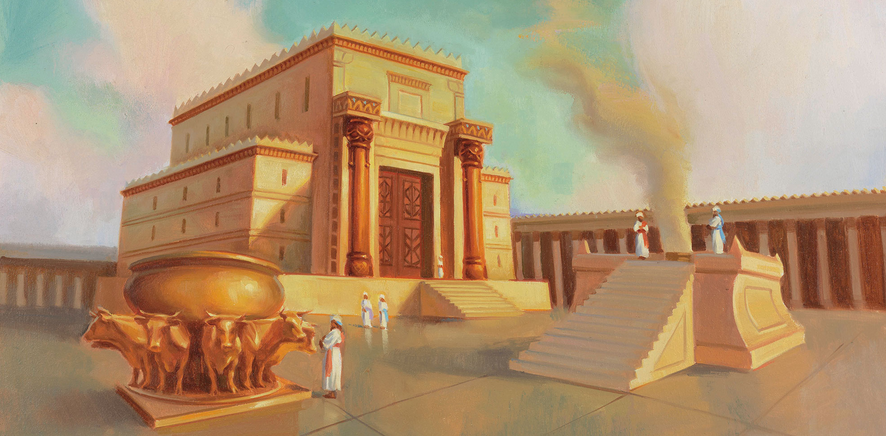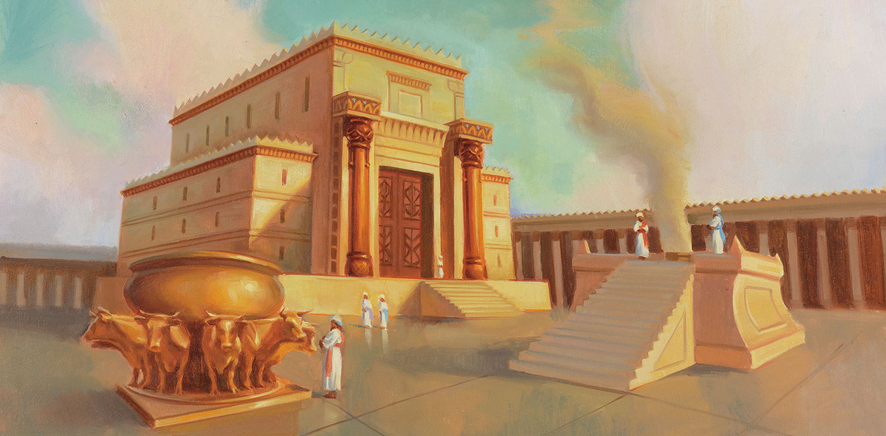
Thoughts on Worship
Recently I shared a few thoughts on worship at Sojourn Campus Church on a Sunday morning. Here is a slightly expanded version of the same…

Life as Worship & The Act of Worship
Worship is presented to us in two broad contexts: Worship as a lifestyle (Rom 12:1-2) and Worship as the act of adoration (the primary words in Hebrew & Greek, I am told, mean to “to bow down, prostrate oneself”). The first is the understanding that all of life is to be lived as an offering to God.
My vocation, washing dishes, cleaning my home, parenting, leisure – all of life I lift up to God as an offering, saying “God, may what I am doing now please your heart”.
Paul exhorts us saying: “And whatever you do in word or deed, do everything in the name of the Lord Jesus, giving thanks to God through him” (Col 3:17). The second context is more direct – it is the very act of worship itself.
I give God love and reverential honor through song, words and other expressive acts. I am not doing “something else” as worship to God, I am simply worshipping him. I surrender myself, my heart, to God in worship.
I find this analogy helpful: Worship is similar to marriage. Marriage is not just romance and sexual intimacy. It is doing laundry, grocery shopping, cleaning, caring for kids, laughter, tears and frustration. It is the merging of two lives.
As husband and wife, all these things are done to express love and commitment to our spouse, and this is marriage, all of it. But at the core of marriage is a man and a woman who passionately give themselves to one another in a romantic, sexually intimate relationship. To do all of the other things for your spouse but hold back yourself from him or her renders the relationship hollow.
The passionate core of marriage is missing. And so it is with worship.
God desires the passionate, intimate giving of ourselves in worship, the act of adoration – though we understand that all of life is an offering lifted up to him.
Worship in the secret place & Worship in community
But the act of worship can be understood in two overlapping contexts. One is the personal prayer life of the believer and the other is the corporate “body” aspect of worship. Jesus had times of personal prayer and worship, alone with God, and he taught us to do the same (Matt 14:23; Matt 6:6). He also gathered with God’s people in the temple to worship God (Luke 21:37-38; Mark 11:17).
Let me come at this from another angle. There is little teaching in the New Testament that is directly related to worship. What we are taught instead is related to our identity as the redeemed people of God. I hope I can explain this in a way that makes sense…
The NT Temple?
In the Old Testament context, the temple in Jerusalem (Mt Zion) was the spiritual center of Israel, indeed, the spiritual center of the world, the locus of God’s redemptive plan. God’s holy, personal and tangible presence dwelt the Most Holy Place of the Temple. This Presence made the temple sacred.
All men, from all nations were invited to this place to pray to Yahweh and thereby encounter him. The tribes were expected to come at least once a year to worship in Jerusalem. But this Old Covenant form of ritualistic temple worship no longer holds sway over us.
It has been superseded by the worship of Jesus, the Great High Priest who entered the True Temple in the heavens, not constructed by human hands. The temple was a mere shadow of the true realities in heavenly places. Jesus brought his offering (his own body and blood) into the heavenly temple and sanctified his people forever.
The NT references to the temple (in an earthly sense) are therefore not related to a physical building. Instead, every reference relates to us, people of God, the church, as the temple of God. This is an astonishing shift in thinking!
The Indwelling
There are really 4 references to believers being God’s temple: 1 Cor 3, when Paul addresses divisions in the church, 1 Cor 6, where Paul addresses sexual immorality, 2 Cor 6, teaching on relating to those outside the church, and Eph 2, in the context of explaining the reconciliation of Jew and Gentile.
What struck me in these 4 passages, is that in every case, the “temple” identity of the church is related directly to the indwelling presence of the Holy Spirit. See for yourselves (emphasis mine):
Do you not know that you are God’s temple and that God’s Spirit dwells in you? 1 Cor 3:16
Or do you not know that your body is a temple of the Holy Spirit within you, whom you have from God? You are not your own, for you were bought with a price. So glorify God in your body. 1 Cor 6:19-20
What agreement has the temple of God with idols? For we are the temple of the living God; as God said, “I will make my dwelling among them and walk among them, and I will be their God, and they shall be my people. Therefore go out from their midst, and be separate from them, says the Lord, and touch no unclean thing; then I will welcome you, 2 Cor 6:16-17
For through him we both have access in one Spirit to the Father. So then you are no longer strangers and aliens, but you are fellow citizens with the saints and members of the household of God, built on the foundation of the apostles and prophets, Christ Jesus himself being the cornerstone, in whom the whole structure, being joined together, grows into a holy temple in the Lord. In him you also are being built together into a dwelling place for God by the Spirit. Eph 2:18-22
Also, it is only the 1 Cor 6 passage that speaks of the personal, individual aspect of our bodies being God’s temple. The other 3 references are describing the corporate, communal aspect of being God’s temple.
So yes, my body is a temple indwelt by the Holy Spirit, but we together (the church) are the temple of of God in the profoundest sense, for we host God’s presence here on earth, just as did the Old Covenant temple.
Hosting the Presence of God on earth
I am sure I do not fully understand all the staggering implications of this truth. The Old Covenant temple, the place where man met God, the place of incessant worship and prayer, the place where God’s glory physically, visibly rested is no longer an ornate building on a high mountain. He no longer dwells in that temple, he dwells in us, his redeemed people.
We, now, are that temple! I suspect it will take me quite a while to really “get” this concept and to break it down into practical steps of obedience and integrate it into my life. But here is my initial stab at some practical thoughts…
I know I need to repent of my casual, take-it-or-leave-it attitude towards corporate worship. It is not enough for me to just pursue my personal intimacy in worship. I must strive, along with the church, to fulfill this call to be the temple of God on the earth.
The worship of the church is part of our identity, our reason for existence. As one man put it “The Gospel is the means; Worship is the end”. If worship is at the core of our identity, then anything that stands in the way of this must be fought and overcome until we can truly say “We have given ourselves to God this day in worship”.
Another deep-felt sense is that at the core of this worshipful identity is the awesome truth that the Holy Spirit, by his precious presence, is the one who truly makes us the temple of God. We are the temple because he, the Holy Spirit, “makes his dwelling among us and walks among us”.
It is his manifest presence that truly demonstrates that God dwells among us (see 1 Cor 14:24-25 for Paul’s idea of how prophetic revelation relates to this idea). Should not everything we do, then, center around him? Should we not wait on him more to show himself and lead us?
I know so often, that I’m in a hurry to get to the next thing, and I fail even to acknowledge the Spirit’s presence, much less allow him to lead me according to his agenda.
The New Jerusalem
Let me end with a picture of what we are being fashioned into. The passage in Ephesians 2 hints that we are being prepared by the Holy Spirit into a dwelling place for God. The final consummation of this is seen in Rev 21, in the descent of the New Jerusalem:
And I saw the holy city, new Jerusalem, coming down out of heaven from God, prepared as a bride adorned for her husband. And I heard a loud voice from the throne saying, “Behold, the dwelling place of God is with man. He will dwell with them, and they will be his people, and God himself will be with them as their God. He will wipe away every tear from their eyes, and death shall be no more, neither shall there be mourning, nor crying, nor pain anymore, for the former things have passed away.” Rev 21:2-4
Did you catch the similarity in the phrasing between this passage and 2 Cor 6? I think this city, this New Jerusalem where God dwells with his people, is the church.
This city represents the final state of the church – beautiful, perfect in every respect, made glorious by God, where God himself dwells in his fullness. This is made clear, I believe, by v9-11:
Then came one of the seven angels who had the seven bowls full of the seven last plagues and spoke to me, saying, “Come, I will show you the Bride, the wife of the Lamb.” And he carried me away in the Spirit to a great, high mountain, and showed me the holy city Jerusalem coming down out of heaven from God, having the glory of God, its radiance like a most rare jewel, like a jasper, clear as crystal. Rev 21:9-11
To see the Holy City is to see the Bride, the dwelling place of God, wherein there is no temple “for it’s temple is the Lord God the Almighty and the Lamb”. This is what we will be one day. So worship, temple of God, and let his presence dwell in you today.


